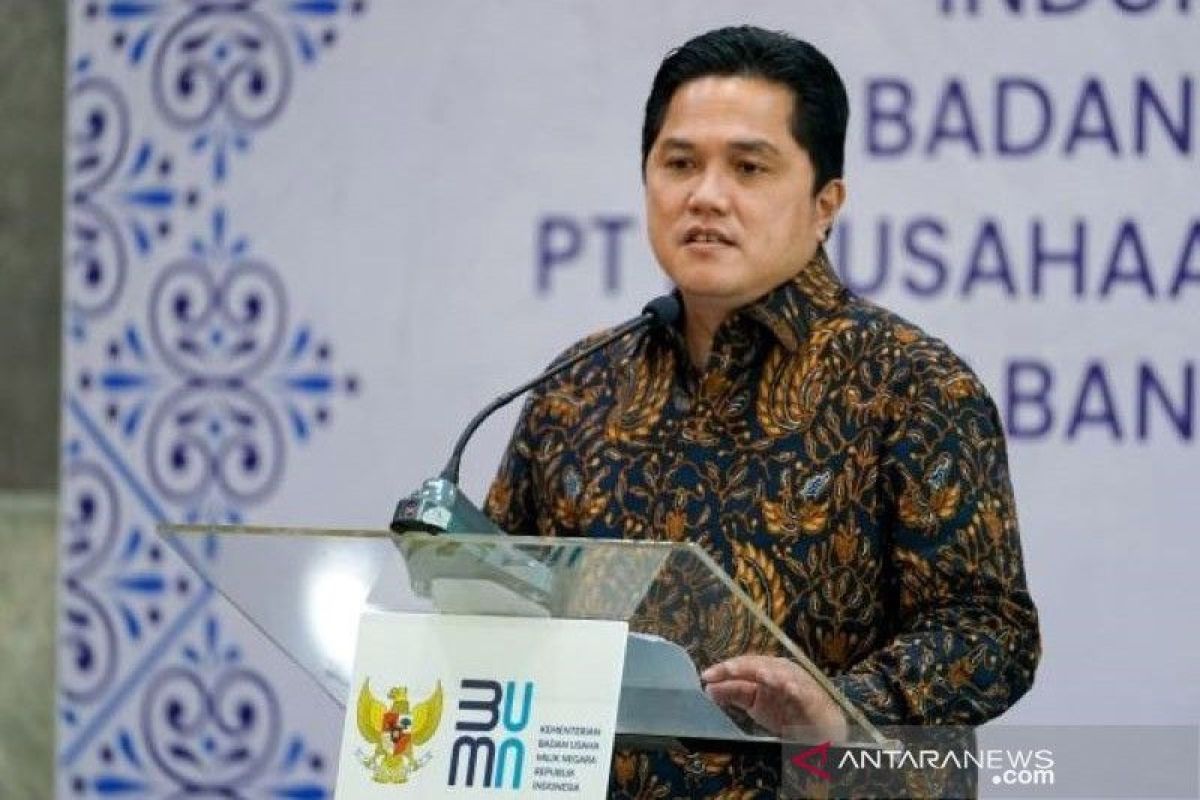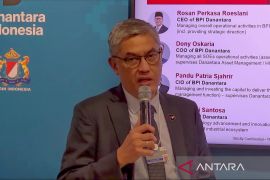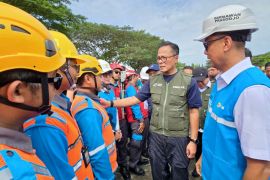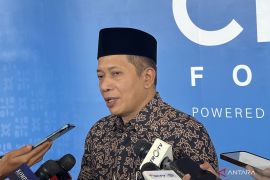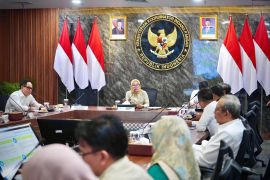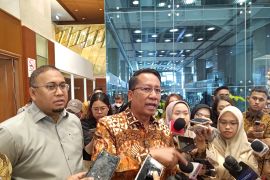In no other time in modern history has access to the internet been as crucial a form of communication to the average person as it is now.
Governments worldwide are turning to digital technology for required policy work, even as businesses are maximizing their digital tools to assist online operations.
Such a condition demonstrates that digital technology is at the forefront of the so-called "new normal".
Even as society looks ahead, digital tools will shape the global economy following the pandemic.
The impact of digital tools transcends households.
This has left policymakers with many lessons to learn, as well as much work to do, and propelled people and businesses to adapt and accelerate the adoption of digital technologies.
Following these developments, the Indonesian government and business circles certainly cannot remain still and left behind. For this reason, it is necessary to develop a digital ecosystem to encourage the digital transformation in the country.
Some efforts to develop a digital ecosystem have been carried out by the Ministry of State Owned Enterprises and among SOEs in Indonesia.
SOE Minister Erick Thohir has stated that SOEs continue to prepare infrastructure, funding, and aggregators to develop Indonesia's digital ecosystem and to build self-sufficiency for the digital transformation.
Thohir said that government will offer massive investment in the nation’s digital infrastructure.
SOEs, he added, are currently implementing, and will continue to carry out, various initiatives in developing Indonesia's digital ecosystem.
For instance, work continues to be performed by the Telkom Group that builds data centers, cloud computing, fiber optic, and 5G networks.
He argued that Indonesia should create its own digital ecosystem and not be complacent with the abundance of natural resources and the large market, which has often been a source of economic growth for other countries.
"We must have our own (digital) ecosystem, our own roadmap, not the ecosystems and roadmaps of other countries," he said.
He also said that strengthening the digital ecosystem was not only about the issue of digital infrastructure development, but also the transformation of human resources.
In fact, hiring workers with digital skills has grown substantially in the last three years across the Asia-Pacific region, highlighting the gap between workforce supply and demand and emphasizing the urgent need for governments and businesses to invest in digital upskilling and reskilling of their workforces, according to research by LinkedIn and Burning Glass Technologies in the report, "APEC Closing the Digital Skills Gap Report - Trends and Insights,” published in 2021.
The research finds that the digital hiring rate across the region increased three-fold between 2016 and 2019.
The research also sees continued strong demand for digital talent, with a greater than one-fold increase in March 2020, as compared to the previous year.
"Digitalization offers us many opportunities and challenges, the most pressing one is to address and manage the discrepancy between industry and education and training systems, where the former moves and innovates a lot faster than the latter," said Professor Park Dong Sun, the chair of the APEC Human Resources and Development Working Group.
Such a report stresses the importance of re-educating workers in the wake of the digitalization era, and it is necessary for all workers to have at least baseline digital skills.
It is also critical to equip new workers with digital skills so they can thrive in the workforce.
Moreover, as businesses are forced to adjust to a more digital work environment, workers may need to expand their digital skills to be able to work efficiently and effectively from home or other locations.
Considering the importance of digitalization and efforts to encourage digital transformation, the Ministry of SOE targets 20 percent of the total SOEs employees in Indonesia to acquire some digital skills and to become technologically savvy by 2024.
"Even within SOEs, we are now making a roadmap, we are targeting 20 percent of SOE employees by 2024 to be digitally technology-literate,” the Minister said.
Thohir considered this to be part of a concrete effort of the state firms' transformation.
"I think this is a consistent part, where the transformation of state firms is not just some kind of lip service, but we ensure concrete measures," he remarked.
Furthermore, Thohir encouraged all state firms to become a catalyst for Indonesia's digital economy.
"SOEs must be a catalyst for Indonesia's economic growth through digital transformation and innovation," he said.
The SOE minister emphasized the importance for Indonesia to take advantage of the momentum of digital disruptions, whose presence not only provides challenges, but also provides opportunities to increase Indonesia's competitiveness in the global arena.
It is estimated that the size of Indonesia's digital economy will continue to grow to Rp1.73 quadrillion (US$120.68 billion) in 2025. To date, it has grown significantly to reach Rp560 trillion (US$39.07 billion) in 2019 and Rp616 trillion (US$42.97 billion) in 2020.
The largest contribution of the digital economy in Indonesia has come from the e-commerce, transportation, food, online travel and online media sectors.
Thus, the utilization of digital technology in state firms is unavoidable.
The digital transformation may create a more effective, inclusive, and healthy business process throughout Indonesia.
Related news: Digital economy ecosystem to be ready in two years: President Jokowi
Related news: Ministry encourages Indonesian MSMEs to join digital ecosystem
Editor: Rahmad Nasution
Copyright © ANTARA 2022
